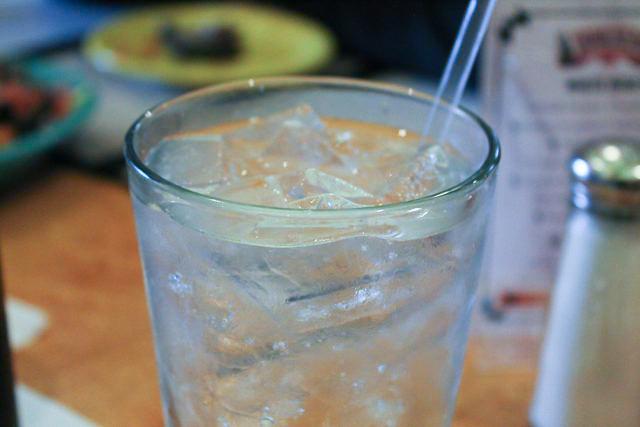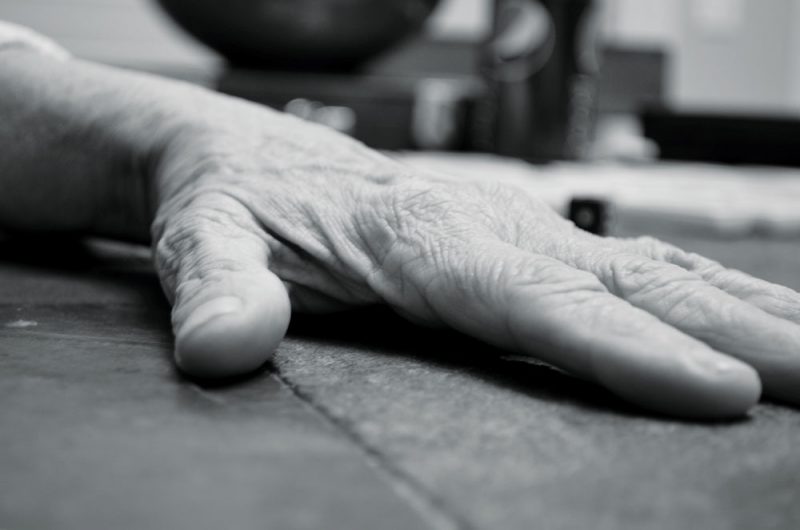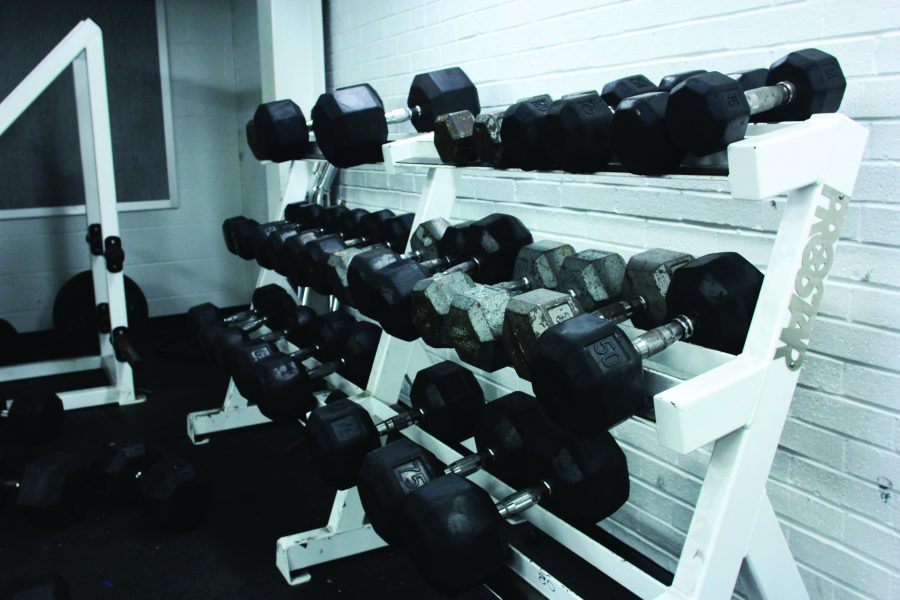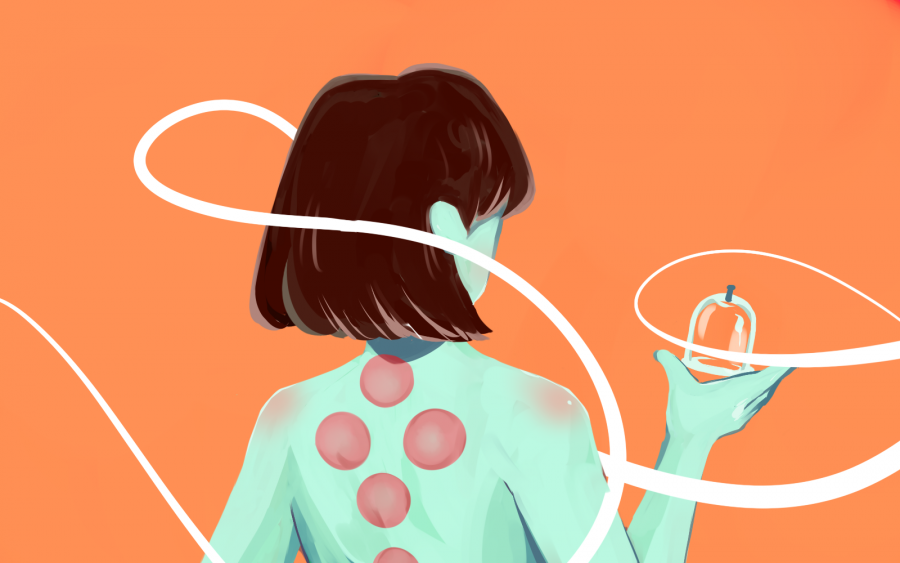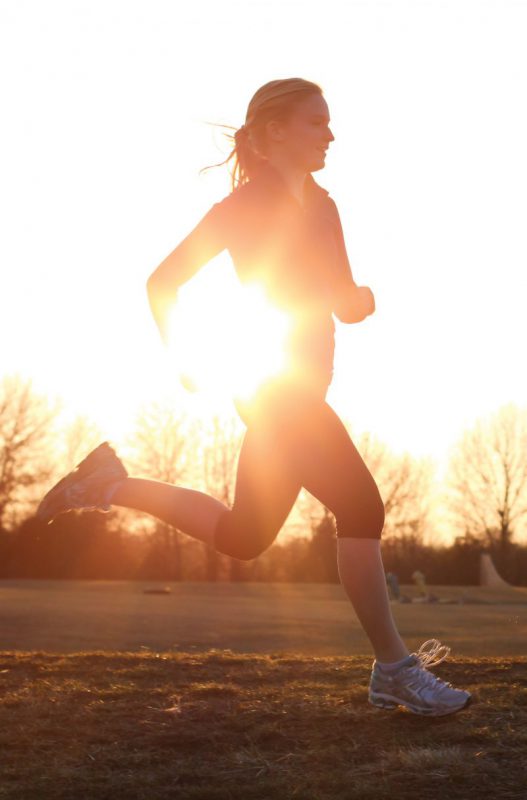Scrolling through social media accounts focused on health and beauty, one begins to notice a trend. It seems that drinking water is a cure-all. Name a problem: acne, dry skin, excess weight, tiredness, cellulite. Chances are, hydration will help. In fact, the obsession has gone beyond regular purified H2O, with sparkling water, black water and raw water also rising in prominence.
Junior Emily Steltzer has recently joined the hydration nation. Since receiving a water bottle for Christmas, she’s upticked her intake and motivation to drink water, specifically as a way to replace sugary drinks. As a way to enhance the flavor, she often adds fruit.
“It’s a little difficult because I still want to drink soda even though I’m trying to take that out. It’s a little difficult, [but] there is no downside to drinking water,” Steltzer said. “I would totally recommend it because lemons and water are so good, I promise. Don’t judge others for what they put in their water because I put an entire orange in my water one time. It’s normal.”
While some, like Steltzer, are supplementing their diet by choice, others don’t have any alternative option. Sophomore Corinne Farid, a tennis player, requires consistent hydration as a way to stay at the top of her game.
“It was because of tennis that I had to drink so much water because whenever I didn’t drink water, I’d always feel dizzy, or I would start cramping in some way,” Farid said. “So my coach was always like, ‘You need to drink more water, so you can sweat more, so you don’t get dehydrated and end up getting sick.’”
Before Farid started drinking five standard water bottles a day, she was a part of the 75 percent of Americans who were chronically dehydrated, as the New York Hospital-Cornell Medical Center’s survey found. What’s more, water intake is correlated with other healthy behaviors, such as eating more fruit and vegetables, getting more exercise and consuming less fast food. Dr. Helena Gibson-More, a nutrition scientist for the British Nutrition Foundation, has learned the significance of water through her studies and work.
“Water is essential for all the functions of the body, and we cannot normally survive for more than a few days without it,” Dr. Gibson-Moore said. “Water is constantly being lost from the body, not only from urine and feces, but also through the skin and in the breath, so this must be replaced regularly by fluid from the diet.”
An occasion that especially highlighted importance of the athlete’s water intake was when Farid was unable to play due to a combination of being overheated and dehydrated.
“I just couldn’t function very well, so I was drinking a ton of water and gatorade just trying to figure out what was going on with me,” Farid said. “So after about an hour, I was just completely exhausted muscularly. It just felt awful; I just couldn’t do anything about it. I felt really stupid because I didn’t drink much water that day.”
It makes sense that Farid especially felt the effects in her lean body mass, as muscles are made up of 73 percent water, as active.com stated. Muscles actually produce one to two cups of water per day through burning glycogen. Still, since water is so critical for basic systems, evolution has given way to anatomical defenses against excessive water loss.
“The body has a series of mechanisms to avoid dehydration. These include reducing the amount of water lost in urine and stimulating thirst to encourage fluid consumption. Thirst is triggered when we are already slightly dehydrated, so it is important to try to avoid getting thirsty,” Dr. Gibson-Moore said. “Water makes up about 60 percent of our body weight, so we need to consume enough fluid to stay properly hydrated and healthy. If fluid losses are not replaced, then dehydration can occur and, even mild dehydration can cause tiredness, headaches, lack of concentration and dry skin.”
These days, there are plenty of ways to help one achieve the eight-glass goal. Technology-wise, apps such as Plant Nanny and digital-tracker water bottles have hit the market with promises to offer motivation and ease. Furthermore, the variety in flavored waters offer an option for any taste bud.
“I feel like if you’re drinking more water, your skin clears up. In a way our culture is growing on that,” Steltzer said. “Thinking about it, I feel like I have, but I haven’t really, noticed significant [benefits].”
How much water do you drink? Comment down below.
Categories:
Hydration promises health
April 30, 2018
0
Tags:
More to Discover












































































